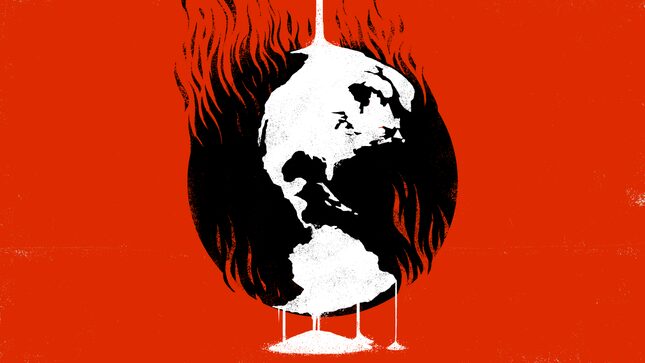Salting the Earth
Politics

I was on my way home from a camping trip on an unusually cool summer day when I learned that John McCain had died. I saw that George H.W. Bush had died, at age 94, while standing in my kitchen, whacking a pomegranate with a wooden spoon to shake the seeds loose. I had to wipe my hands clean to read the news on my phone.
These were quiet deaths of very old men, but the spectacle created around them—the eulogies, the media hagiography delivered on a loop during an endless news cycle—gave them the weight of living through history. Their passing was seared into the memories of ordinary people like me, who had never even met them. That’s power, I guess.
In the coming years, more older politicians will die and we will again go through the same tiresome exercises that followed McCain and Bush’s deaths: it will be asked whether it is polite to remember a man’s dangerous policies in death, whether qualities like interpersonal kindness mean anything in the face of their outwardly destructive political legacies, whether younger politicians fit the mold of these departed statesman. I cringe thinking of the tributes yet to be written for men like Chuck Grassley, who is 85, and Orrin Hatch, who is 84—men who sat long enough in the Senate to hear, and disregard, testimony from both Anita Hill and Christine Blasey Ford. Or for Mitch McConnell, 76, whose career spanned enough time for him to use a filibuster to stymie campaign finance reform almost 25 years ago and also block a Democratic Supreme Court nominee in order to hand Donald Trump not one, but two, lifetime appointments.
In the end, though, it doesn’t really matter how we remember these individual men. Their legacies will be felt, in ways both mundane and grotesque, as the rest of us live our lives in the country we’ve inherited from them. And on that account, their collective impact is clear: the world that they’ve left behind for us will soon be mercilessly uninhabitable. It’s hard to state the facts in front of us without starting to sounding Mad Max-ian, but routine catastrophe is a new kind of normal: wildfires rage, burning everything in their path. Hurricanes relentlessly displace entire populations. Rising sea levels are literally shrinking our terrain.
Most of the men and women making these policies will be long dead before the worst of their decisions, a legacy of salting the earth, come down on the rest of us.
The effects of climate change are only going to worsen for the young people who still have the majority of their lives left to live, and for the generations yet to be born. But even today, with the more catastrophic impacts of climate change still abstracted in an increasingly near future, life is already punishing now. These men led us to the present day, setting down policies like stones on a walkway: migrant children forcibly separated from their parents at the Southern border, millions of black children separated every day from parents swept up in a system of mass incarceration, students across the country confronted with the gun violence threat that comes with walking into the classroom, mass poverty at a time of unprecedented wealth.
It doesn’t get any easier when these children enter adulthood. Young adults have the highest uninsurance rate in the country and people are turning to crowdfunding websites just to afford medical care. Many of them still can’t, and die. America is the only country among its industrialized peers with a rising maternal mortality rate: mothers today have a higher chance of dying during pregnancy than they did 15 years ago. A Brookings report found in 2014 that young black high school dropouts had a higher chance of being in prison than employed. And materially, we have less, overall, than our parents when they were our ages. A new study released in November by Federal Reserve economists found that in the wake of the Great Recession, “millennials are less well off than members of earlier generations when they were young, with lower earnings, fewer assets, and less wealth.” In the now routine coverage of the things that millennials are supposedly killing—cars, the housing market, retirement—it turned out that we were the ones getting killed.
-

-

-

-

-

-

-

-

-

-

-

-

-

-

-

-

-

-

-

-

-

-

-

-

-

-

-

-

-

-

-

-

-

-

-

-

-

-

-

-








































